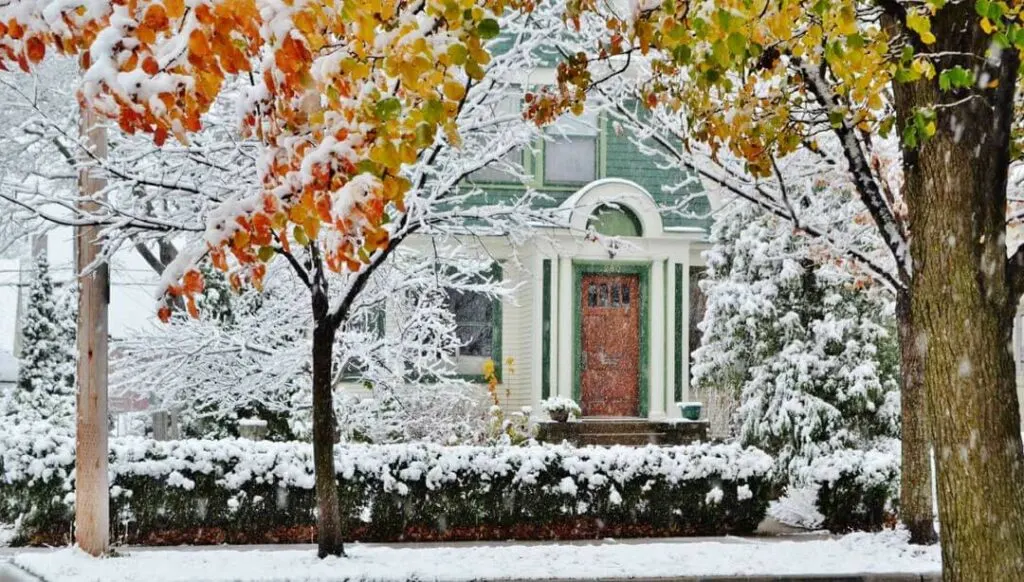Heating your home during the colder months can be expensive. Whether you have an old house or do not know how to heat your home effectively (without using the central heating system all day), you might be spending more than you need to on your heating during fall and winter.
Today, this guide will share the top tips for reducing your heating costs during the winter.
Check your boiler efficiency.
When a boiler isn’t working efficiently, it might cause you to use your system for longer as the heating isn’t getting hot enough. If this is the case, heating your home when the temperatures reduce will cost you a lot more money.
Seeking professional HVAC repair services will improve the efficiency of your heating system so that you don’t need to overuse it to heat your home. Even if you think your heating works correctly, it is wise to check it once a year. A dedicated team will help you find any issues and help it work as it should to heat your home efficiently.
Only heat the rooms you are using.
It makes sense to heat only the rooms you use. Heating the entire house will cost you a lot more money than necessary.
For example, if you only use the living room, kitchen, and bedrooms, there is no need to heat the dining room and extra bathrooms. Heating only the rooms you need will keep costs down and help you save some extra money.
Don’t overboil your water.
Your boiled water costs might be part of your heating bill. If so, you need to monitor your use and be cautious. Overboiling your water or heating too much water is unnecessary and costly.
You can install a water meter to check how much water you have heated. Then, you can assess whether this is enough for your needs and switch off the function. You can boil more water when you need it, helping to keep costs down.

Reduce the temperature of your combi boiler.
To prepare your home for winter and keep costs down, it is wise to reduce the temperature on your combi boiler.
It is suggested that turning it down to 60 degrees Celcius or less will knock money off your bill. You can still heat your home to the same cozy temperatures without needing to spend a fortune on heating.
Seal your windows and doors effectively.
Your windows and doors can let in draughts during the winter. If this happens, your home will feel cold, and it will encourage you to turn the heating up.
Sealing the draughts will help the cold air out and ensure that your heating isn’t switched on for no reason. Be sure to check your skirting boards and walls, too, as there might be gaps there, allowing air into your home. Sealing as much as possible will guarantee that your heating is used purposefully.
Install a programmable.
Using a programmable thermostat is another easy approach to cutting heating expenses. A programmable thermostat lets you set different temperatures for different times of the day, so you can ensure that your heating system isn’t running when it’s not needed.
For example, you may set the temperature to a lower setting while you’re at work or asleep, and it will warm right before you get back or wake up. In the long run, this can result in significant savings since it lessens needless heating.
Dress warmly inside.
Another piece of advice is to dress warmly inside. Invest in layering with blankets, sweaters, and socks rather than turning up the heat. This small adjustment can significantly improve your comfort level and lessen the desire to turn up the thermostat.
Furthermore, you can get warmth where you need it most without heating your entire house by using heated blankets or pads.
Long-term investments to make savings.
Think about making long-term investments that will eventually pay dividends. You can significantly lower your heating bills by installing energy-efficient windows, replacing your old furnace or boiler with a high-efficiency model, or even buying a heat pump. Although there may be an upfront cost associated with these modifications, there may be significant long-term energy savings.
For example, energy-efficient windows improve the overall comfort of your home by removing moisture and chilly drafts in addition to reducing heat loss. In a similar vein, a boiler or furnace with higher efficiency runs more smoothly and consistently delivers warmth while consuming less fuel or power.

Jessi is the creative mind behind The Coffee Mom, a popular blog that combines parenting advice, travel tips, and a love for all things Disney. As a trusted Disney influencer and passionate storyteller, Jessi’s authentic insights and relatable content resonate with readers worldwide.
